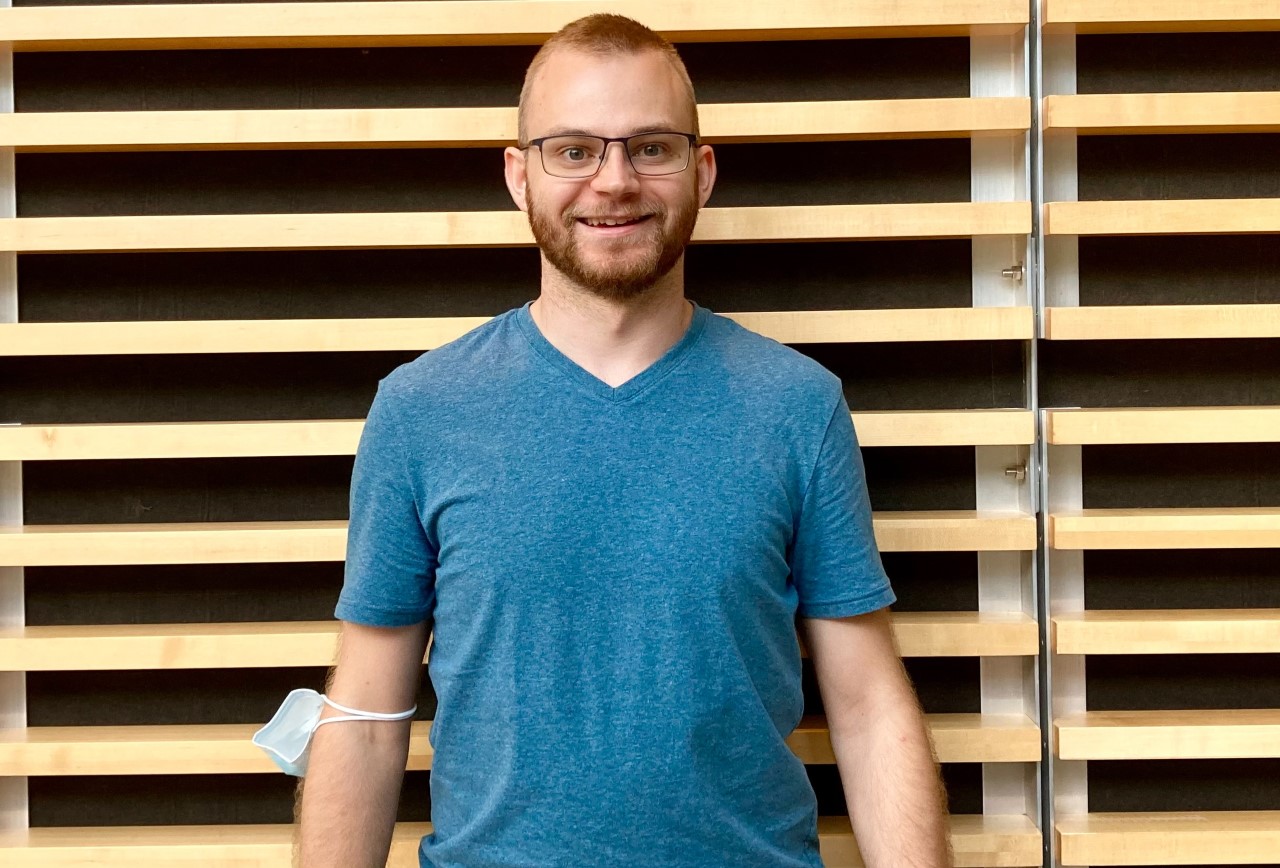Nils Koch
PhD Student

Nils was born in Stuttgart, Germany and was raised in Edmonton, Alberta where he completed a BSc with Honours in Neuroscience in 2019 at the University of Alberta. During this degree, Nils started his research career in the lab of Dr. Silvia Pagliardini investigating the neural control of respiration in rodents. To pursue his interest in the dynamics of neuronal excitability, he then completed a MSc in Neural and Behavioural Science at the University of Tübingen in Tübingen, Germany in the lab of Prof. Dr. Jan Benda. Here, Nils used computational approaches to understand the impacts of ion channel mutations on neuronal firing behaviour to bridge the gap between characterization of the biophysical properties of ion channels and clinical symptoms. This work led him to join the Bowie Lab in September 2021 as a PhD student co-supervised by Dr. Anmar Khadra. He will work on the mechanisms involved in Fragile X syndrome with both electrophysiological and computational approaches.
Scholarships and Awards
2023-2026 |
NSERC PGS-D ($63,000/3 years) |
2022-2023 |
NSERC-CREATE: Complex Dynamics of Brain and Behavior ($26,000/1 year, 8-month stipend of $18,000 plus a 16-week internship stipend of $8000) |
Publications
Lauxmann S, Sonnenberg L, Koch NA, Bosselmann C, Winter N, Schwarz N, Wuttke TV, Hedrich UBS, Liu Y, Lerche H, Benda, J. and Kegele, J. (2021) Therapeutic Potential of Sodium Channel Blockers as Targeted Therapy Approach in KCNA1-Associated Episodic Ataxia and a Comprehensive Review of the Literature. Front. Neurol. doi: 10.3389/fneur.2021.703970
Johannesen KM, Liu Y, Koko M, Gjerulfsen CE, Sonnenberg L, Schubert J, Fenger CD, Eltokhi A, Rannap M, Koch NA, Lauxmann S, Krüger J, Kegele J, Canafoglia L, Franceschetti S, Mayer, T., Rebstock J, Zacher P, Ruf S, … Møller RS. (2021). Genotype-phenotype correlations in SCN8A-related disorders reveal prognostic and therapeutic implications. Brain. doi: 10.1093/brain/awab321.
Pisanski A, Ding X, Koch NA, Pagliardini S. (2019). Chemogenetic modulation of the parafacial respiratory group influences the recruitment of abdominal activity during REM sleep. Sleep. doi: 10.1093/sleep/zsz283.